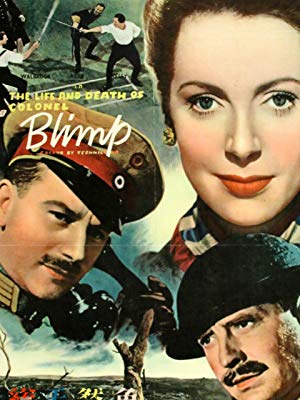
The Life and Death of Colonel Blimp is seen as being Roger Livesey’s film, and he gives a magnificent performance, as he did in another Powell and Pressburger film, I Know Where I’m Going. But it is Deborah Kerr’s exquisitely emotive face that creates a common thread throughout the film for Roger Livesey’s Clive Candy to follow and cling to that is outside the strictures, horrors and male dominations of a life in military service. Deborah Kerr is first introduced as Edith Hunter through a letter she has sent Clive Candy, who is newly returned from the South African War, and is finding it difficult to adjust to the routine of military life confined to Turkish baths and bureaucracy. Her letter reinvigorates him, and despite warnings from his superiors, he goes to Berlin to “investigate” the anti-British sentiments that Edith writes is being spread by a German officer Candy knows from a previous battle.
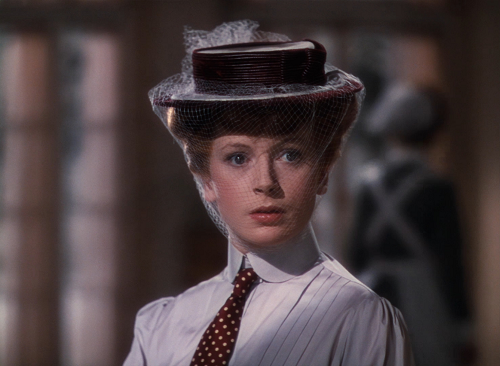
Edith is headstrong, forthright and intelligent, but still a refined and self-possessed lady, who is trying to carve out a mark for herself in a world that has limited opportunities for an educated woman. It is Edith who brings Candy and another German officer, Theo Kretschmar-Schuldorff (played by the incomparable Anton Walbrook) together, after the two men fight a duel due to Candy inadvertently insulting the German Army officer corps. Edith falls in love with Theo, and marries him, much to Candy’s initial delight. In the scene where Candy discovers Edith and Theo’s impeding matrimony, Deborah Kerr shows her consummate capacity for displaying a myriad of emotions without appearing verbose. Most of her feelings are conveyed without words, which is an ability that is evident in all her film performances. Upon returning to England, however, Candy realises that he is in love with Edith, and unsuccessfully tries to get over her by first courting her much more reserved sister, and then going on a series of big game hunts.
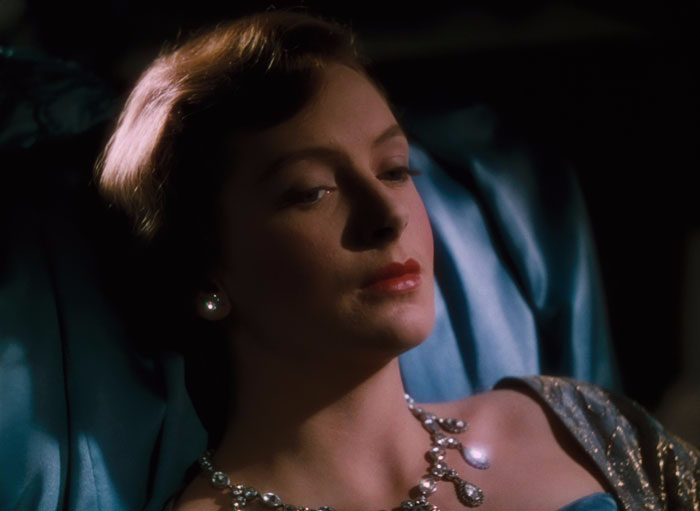
During World War One, Candy has been promoted to brigadier general, and his strong moral compass means that he believes that the allies have been victorious because of morality. Quite by accident, he meets Barbara Wynne, an army nurse serving on the frontlines in France, who looks almost identical to Edith. Candy is struck by Barbara’s resemblance to his past love, and pursues and marries her, despite a large age difference. However, Barbara seems well suited to Candy, and is able to offer a counterbalance to his sometimes blustering and old fashioned inclinations. Like Edith, Barbara is very intelligent and insightful, which is showcased when she and Candy attempt to visit Theo in a POW camp in England, where the latter rejects his old friend.
Barbara observes:
I was thinking – how odd they are, queer. For years and years they’re writing and dreaming beautiful music and beautiful poetry. All of a sudden they start a war, sink undefended ships, shoot innocent hostages, and bomb and destroy whole streets in London, killing little children. And then they sit down in the same butcher’s uniform, and listen to Mendelssohn and Schubert. Something horrid about that…
Barbara is the only one to really reflect on the contradictions of war, and how complex the motivations of war are. And how people often do not connect the quiet routines of civilian life to the destructive capacities of conflict. Candy only comes to reflect upon the truth of this much later, when he is confronted by the changing landscape of war and those involved in it.
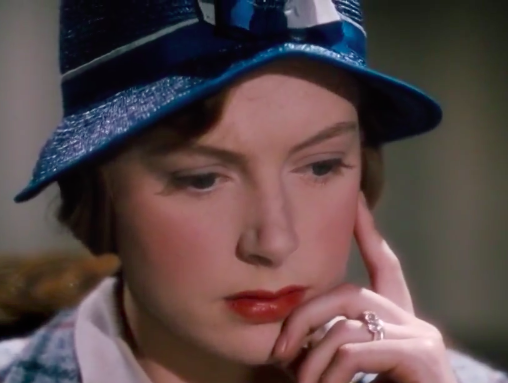
Barbara unexpectedly dies, leaving Candy widowed before he retires from the military. During World War II, Candy is reinstated in the military. He is reunited with Theo, who has been forced to flee Germany due to the Nazi occupation and his estrangement from his children, who have adopted Nazism. Candy finally admits to Theo that he has always loved Edith, who died in Germany at the start of WWII, despite wanting to return to England, which Theo bitterly regrets. Candy shows Theo a beautiful portrait of Barbara, and Theo remarks on how lovely she looked.
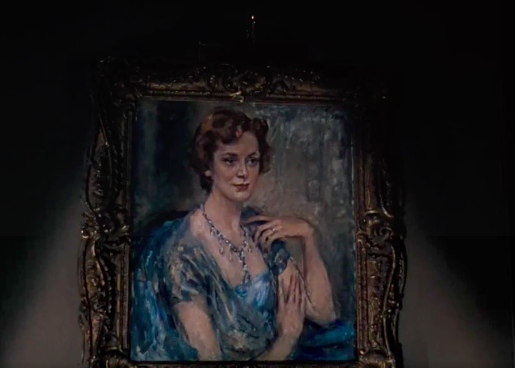
Candy then introduces Theo to Johnny “Angela” Cannon, a feisty young English woman serving in The Mechanised Transport Corps, and who is Candy’s personally selected driver. It is clear that Candy has chosen Johnny to act as his driver because of her striking resemblance to both Edith and Barbara. Like Edith and Barbara, Johnny is wonderfully intelligent and able to handle Candy’s sometimes heavy handed approach to things. But unlike Edith and Barbara, Johnny is neither reserved nor a self possessed lady. She is a modern woman who is serving her country as best she can, and who, unlike Candy, is equipped to understand the changing “rules” of war.
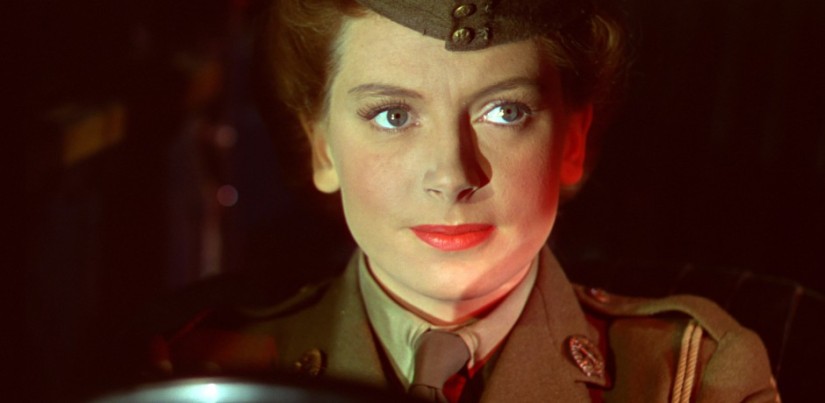
Candy, due to Theo and Johnny’s suggestion, becomes involved with the Home Guard as he believes that it is vital for England to be prepared for a possible invasion by the Nazis while most of their troops are fighting in Europe. He is still unable to let go of his long held ideas about morality and fairness in war, which causes him some embarrassment at the hands of Johnny’s young boyfriend, who ignores the directive for a mock invasion that is only supposed to commence at midnight, and “captures” Candy in a Turkish Bath. Johnny’s independence as a modern women, is also shown by her attempt to defy her boyfriend by trying to warn Candy of her boyfriend’s plans regarding the exercise. Afterwards, Johnny is regretful of her boyfriend’s behaviour, but Candy assures her that he understands what it means to be young, and invites she and her boyfriend to dine with him.
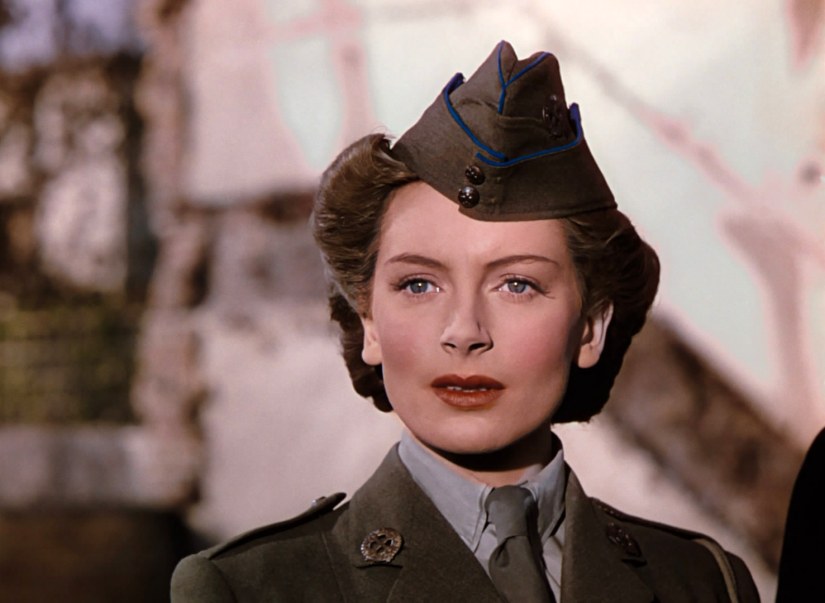
Deborah Kerr’s performance in The Life and Death of Colonel Blimp, is a wonder. She is subtle in her shifting from Edith, to Barbara and then to Johnny. The three characters differ not because Kerr is outlandish in her portrayal of the differences between the three women, but because Kerr adeptly portrays them as women who exist in different eras. All three women are intelligent and act as an objective correlative to Candy, and because of this, Candy’s character matures and he comes to understand his own rigidity of character and thought.
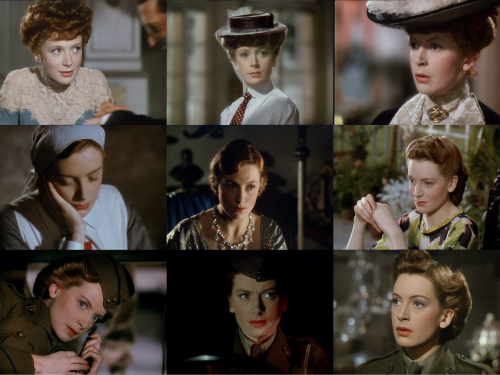


The heart of this film may well be Clive and Theo’s friendship and journey, but Deborah ensures that her three characters become just as memorable and important as the men are. I too love Barbara’s speech/observations about war. Barbara captures in just a few sentences, the truth, complexity, and the strangeness of war.
Thanks so much for joining with this terrific tribute to Deborah’s performances in this film.
LikeLiked by 2 people
That’s such a good way of putting it. I’m so glad you enjoyed my contribution. You’re so welcome, thank you for allowing me to join in, I enjoyed it immensely.
LikeLiked by 1 person
It was a great read. I’m so happy to hear how much you’ve enjoyed taking part.
LikeLiked by 2 people
Deborah Kerr’s subtle and appealing performance is a charming thread through the decades. A lovely breakdown of a cinematic triumph.
LikeLiked by 2 people
Such a good way of putting it. I’m so happy you thought so!
LikeLiked by 1 person
This is a favorite film of my sister and mine and we, too, appreciate Deborah Kerr’s performance in it as much as Roger Livesay’s and Anton Walbrook’s ( one of our early screen crushes ). She was truly incomparable as an actress. Not too many stars could pull off portraying three roles and making you miss “Edith Hunter” as much as Clive does, even when Barbara and, later, Johnny, are in the picture. I often wonder what “I Know Where I’m Going” would have been like had Kerr been cast in place of Wendy Hiller, as Powell had originally intended.
LikeLiked by 1 person
I’m so glad you enjoyed my efforts, Constance. That really would’ve been interesting. Although I love Wendy Hiller in that role, it’s always intriguing to think about what might have been!
LikeLike
I have yet to see this film, but your review has convinced me I really need to.
LikeLiked by 1 person
Oh I’m so glad! I’m sure you’ll really enjoy it!
LikeLike